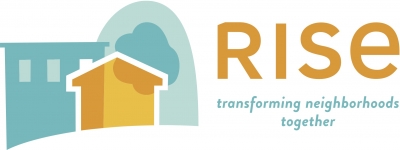ST. LOUIS RECEIVES $200,000 GRANT FROM NATIONAL INITIATIVE TO HARNESS DATA AND TECHNOLOGY TO IMPROVE THE LIVES OF LOW-INCOME PEOPLE RISE TO MANAGE PROJECT
Cross-sector partnership will work to place more young people in summer jobs/ develop a more citizen-centered justice system.
St. Louis has been selected for a national initiative of Living Cities, Code for America and the National Neighborhood Indicators Partnership to harness civic data and technology to improve the lives of low-income residents.
Under this initiative, Rise, Open Data STL, and St. Louis County will collaborate to implement technology solutions to help people navigate the criminal justice system locally, including traffic ticket resolution, appearing in court and resolving warrants. Better collection and analysis of data will help improve the operations of these systems. The partners will also collect stories about people’s interactions with the justice system in order to identify and push for additional solutions. A $200,000 grant has been awarded for implementation of the initiative. Rise is the fiscal agent for the grant and will manage the funding.
“We are honored to be part of this important collaboration,” said Eleanor Tutt, Data Management Coordinator for Rise. “Improvements in data collection and analysis can result in significant enhancements in people’s relations with local governments.”
For the national partners, this initiative advances two goals: (1) demonstrating what is possible when data and technology are intentionally applied to address problems affecting low-income people; and (2) strengthening collaboration at the local level between civic technologists, neighborhood data practitioners and government officials.
“When it comes to addressing poverty in America’s cities, our pace of change is too slow, and the scale too small,” said Ben Hecht, President and CEO of Living Cities. “We want to prove that the disruptive power of data and technology can be harnessed to achieve dramatically better results in the lives of low-income people, faster. In order to do that, you have to have all the key partners at the table, working intentionally towards a shared result.”
“Smart, data-driven decision-making can become the norm,” said Sarah Rosen Wartell, President of the Urban Institute, which coordinates the National Neighborhood Indicators Partnership. “But it requires close collaboration among people who can organize and analyze the data, communicate the insights, and act on the findings. Because these projects have brought the right players together, as they unfold, they’ll teach us a great deal about building strong local data cultures that can respond to what communities need.”
Both projects aim to improve local government processes that touch the lives of low-income city residents. “At Code for America, we believe that government can work for the people, by the people, in the 21st century,” said Jennifer Pahlka, Founder and Executive Director of Code for America. “That cause is best advanced through partnerships among local government leaders, civically-minded technologists, and community data practitioners. We’re excited to help these groups move the needle on an issue that matters.”
The program is supported through a grant from the John D. and Catherine T. MacArthur Foundation. “We see data and technology as critical accelerants to the community development work we have been supporting for decades,” said Julia Stasch, President of the MacArthur Foundation. “We are pleased to be partnering with Living Cities, Code for America and the National Neighborhood Indicators Partnership to push the envelope on this important work.”
About Rise
Rise (www.risestl.org) is a nonprofit organization that partners with communities to build sustainable and equitable St. Louis area neighborhoods. Rise is a community lender, develops affordable and market-rate housing, particularly in neighborhoods with the potential to enhance economic diversity, and provides capacity-building technical assistance to community-based development organizations. Rise also maintains a variety of data and mapping for areas throughout the St. Louis region as well as assisting in the collection and creation of new data specific to a particular development or neighborhood. Rise aggregates information to aid efforts around food access, financial services, economic development and housing through the St. Louis Neighborhood Gateway. www.datagateway.org
About Open Data STL
Open Data STL is a group of civic-minded data-savvy citizens of St. Louis and the surrounding metropolitan area that has come together to provide resources for finding openly available data related to the growth, history, productivity, and demographics of our fair city. Learn more at www.opendatastl.org.
About Living Cities
Living Cities harnesses the collective power of 22 of the world’s largest foundations and financial institutions to develop and scale new approaches for creating opportunities for low-income people and improving the cities where they live. Its investments, research, networks, and convenings catalyze fresh thinking and combine support for innovative, local approaches with real-time sharing of learning to accelerate adoption in more places. Additional information can be found at www.livingcities.org.
About Code for America
Code for America is a national non-profit that believes government can work for the people, by the people, in the 21st century. In collaboration with communities, companies, and government, Code for America builds open source technology and organizes a network of people dedicated to making government services simple, effective, and easy to use. More at www.codeforamerica.org.
About the National Neighborhood Indicators Partnership
The National Neighborhood Indicators Partnership (NNIP) is a collaborative effort by the Urban Institute and local partners to further the development and use of neighborhood information systems in local policymaking and community building. For more information, please visit www.neighborhoodindicators.org/.

